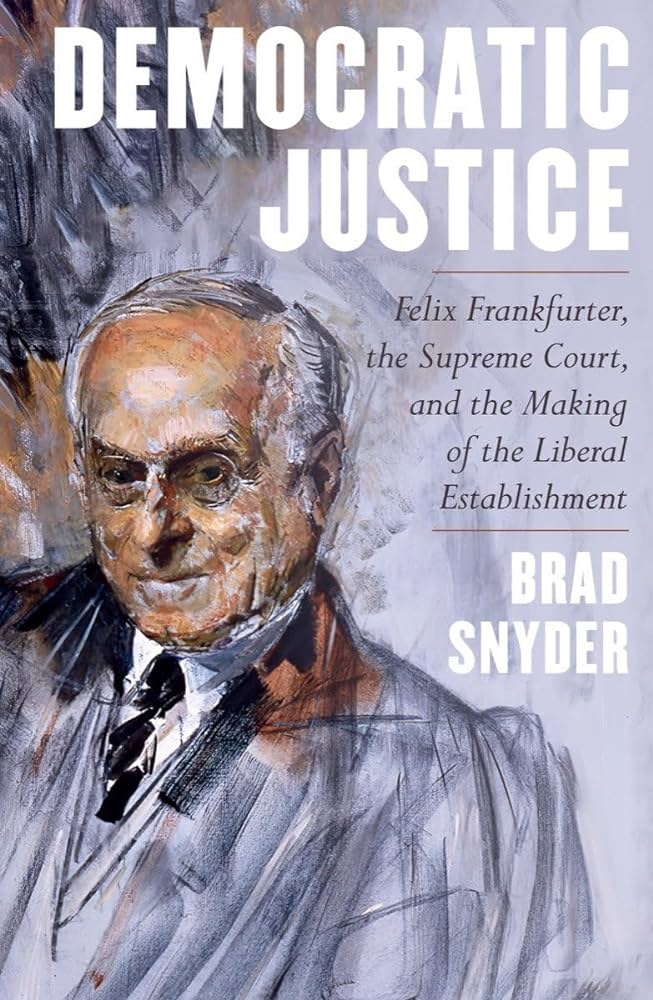What accounts for the Court’s being so often on the wrong side of progress and history? Democratic Justice, an impressive new biography of Felix Frankfurter by Brad Snyder, a professor at the Georgetown University Law Center, gives us a chance to consider that question. Though as a lawyer and academic he was a great liberal, as a justice Frankfurter increasingly facilitated the Court’s conservative tendencies. Snyder, who greatly admires him, contends that his principles, formed early in his adult life, remained consistent throughout his career. But a more detached observer may well view it as a foolish consistency.
Frankfurter was born in Vienna in 1882 to parents of modest means but high hopes who immigrated to the United States when he was twelve. Although he spoke no English when he arrived, a dozen years later he graduated from Harvard Law School with the highest grades in the class. He then sought employment in the established law firms of New York, but despite his grades, his obvious brilliance, his prodigious energy, and his buoyant personality, he was rejected by almost all of these “white shoe” firms because he was a Jew.
It may have been for the best. Even though, thanks to the strong endorsement of the dean of Harvard Law School, James Barr Ames, Frankfurter finally found a position at a New York firm, he soon realized that the stuffy confines of the Wall Street legal world were not for him, so he accepted an unsolicited offer to be an assistant US attorney in the Southern District of New York. In Snyder’s words, the offer “changed his life.”
The offer came from Henry Stimson, whom President Theodore Roosevelt had just appointed US attorney for the Southern District (which includes Wall Street) and directed to prosecute the economically powerful trusts—the monopolies and oligopolies—that he had promised to bring to heel. To accomplish this, Stimson decided to replace the politically appointed assistant US attorneys typical of that period with energetic young lawyers selected on their merits. The very young Frankfurter was his first choice. (In my chambers, I keep a photo of Stimson’s first class of merit hires, in which Frankfurter, though twenty-five years old, looks like he is about fifteen. It also appears in Snyder’s book.)
Frankfurter more than met Stimson’s expectations, successfully prosecuting, for example, Charles Heike, the secretary and treasurer of the American Sugar Refining Company (the so-called Sugar Trust that controlled 98 percent of the US market), for a variety of monopolistic practices that had been allowed to continue for years. Frankfurter first convicted lower-level executives and then squeezed them for information about Heike—a method that was used repeatedly to prosecute high-level executives in the years to come (though it has too often been abandoned in the past two decades).
